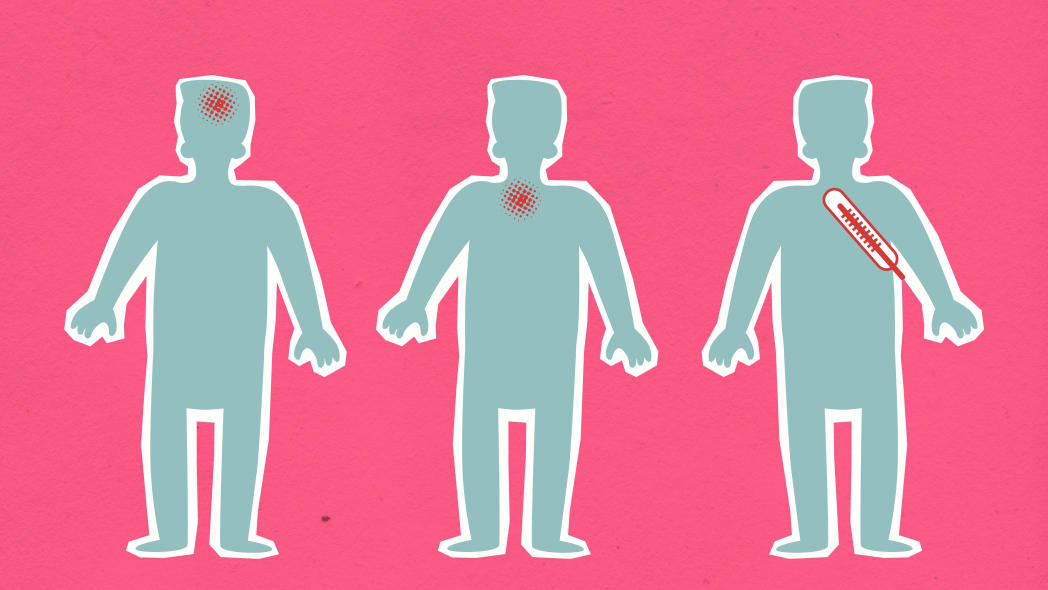
What Is Syphilis? - Causes, Symptoms, Diagnosis & Treatment
by Esther on July 5, 2023 , 5 min read
Syphilis is a sexually transmitted infection (STI) caused by the bacterium Treponema pallidum. It is a highly contagious disease that can affect various parts of the body. In this article, we will explore the causes, symptoms, diagnosis, and available treatment options for syphilis. We will also discuss important considerations regarding syphilis and pregnancy, as well as how the infection can be diagnosed and managed.
What is Syphilis and How It is Spread?
Syphilis is a bacterial infection that can be transmitted through sexual contact, including vaginal, anal, and oral sex. It can also be spread from an infected pregnant woman to her unborn baby. Syphilis progresses in stages, and each stage has different symptoms and implications for health.

What are the Stages of Syphilis?
Syphilis has four stages:
1. Primary syphilis: This stage begins with the appearance of a painless sore or ulcer known as a chancre at the site of infection. The chancre can occur on the genitals, anus, lips, or mouth.
2. Secondary syphilis: During this stage, a rash may develop on various parts of the body, along with flu-like symptoms such as fever, swollen lymph nodes, sore throat, and fatigue.
3. Latent syphilis: In this stage, the infection remains dormant and may not cause any noticeable symptoms. However, the bacteria are still present in the body and can be transmitted to others.
4. Tertiary syphilis: If syphilis is left untreated, it can progress to the tertiary stage, which can involve severe complications affecting the heart, brain, blood vessels, and other organs. This stage can occur years or even decades after the initial infection.

What Causes Syphilis?
Syphilis is caused by the bacterium Treponema pallidum. The infection spreads through direct contact with syphilis sores, which can occur on the external genitals, anus, rectum, or lips. The bacteria can also enter the body through mucous membranes during sexual activity, including oral sex. Additionally, an infected pregnant woman can transmit the infection to her baby during pregnancy or childbirth.
How long will I be infectious?
Syphilis is most infectious during the primary and secondary stages when sores or rashes are present. However, the infection can still be transmitted during the latent stage, even in the absence of symptoms. Timely diagnosis and treatment are essential to reduce the risk of transmitting syphilis to sexual partners.

How does syphilis spread?
Syphilis is primarily spread through sexual contact, including vaginal, anal, and oral sex. It can be transmitted through direct contact with syphilis sores or by coming into contact with the rash of secondary syphilis. Pregnant women with syphilis can pass the infection to their babies during pregnancy or childbirth.
What are the Symptoms of Syphilis?
The symptoms of syphilis vary depending on the stage of infection. Some common signs and symptoms include:
1. Primary stage: A painless sore or ulcer (chancre) at the site of infection.
2. Secondary stage: Rash, flu-like symptoms, fever, sore throat, swollen lymph nodes, fatigue, and muscle aches.
3. Latent stage: No visible symptoms, but the infection remains in the body.
4. Tertiary stage: Severe complications can arise, including damage to the heart, brain, blood vessels, and other organs.
It is important to note that the symptoms of syphilis can be mild or easily overlooked, leading to delayed diagnosis and potential complications. Regular STI testing is crucial for early detection and prompt treatment.
Where can you get syphilis?
Syphilis can be contracted through sexual contact with an infected person. It is most commonly transmitted during vaginal, anal, or oral sex. The infection can be present on the external genitals, anus, rectum, or lips. Sharing needles or syringes with an infected person can also spread syphilis.
Can kissing spread syphilis?
While syphilis is primarily transmitted through sexual contact, it is possible to contract the infection through deep kissing (kissing with the exchange of saliva) if one of the individuals has syphilis sores or lesions in or around the mouth.
Syphilis and Pregnancy
Syphilis can pose serious risks to both the pregnant woman and her unborn baby. If left untreated, it can result in stillbirth, premature birth, low birth weight, or developmental abnormalities. Pregnant women should undergo routine prenatal care and be screened for syphilis to ensure early detection and appropriate treatment if necessary. Treatment during pregnancy can effectively prevent transmission to the baby.
Syphilis Diagnosis and Tests
Diagnosing syphilis typically involves several steps, including:
1. Physical examination: A healthcare provider will examine the affected areas for any visible signs of syphilis, such as sores or rashes.
2. Blood tests: Specific blood tests can detect the presence of syphilis antibodies or the bacteria itself. These tests may include the Venereal Disease Research Laboratory (VDRL) test, Rapid Plasma Reagin (RPR) test, or Treponemal-specific tests like the Fluorescent Treponemal Antibody Absorption (FTA-ABS) test or Treponemal Pallidum Particle Agglutination (TPPA) test.
What is the Treatment for Syphilis?
Syphilis is typically treated with antibiotics, primarily penicillin. The specific antibiotic and treatment regimen will depend on the stage and severity of the infection. Early-stage syphilis can often be treated with a single dose of penicillin, while more advanced cases may require a longer course of antibiotics.
It is crucial to complete the full course of treatment as prescribed by a healthcare professional, even if the symptoms resolve. Follow-up testing is essential to ensure the infection has been successfully treated.

To summarize, syphilis is a sexually transmitted caused by an infectious bacterium. It can have serious health consequences if left untreated. Understanding the causes, symptoms, and available treatment options for syphilis is vital for early detection, effective management, and prevention of transmission. Regular STI testing, safe sex, and open communication with sexual partners are important steps in maintaining sexual health and well-being. If you suspect you may have syphilis or have been exposed to it, consult a sexual health doctor for proper diagnosis and treatment.